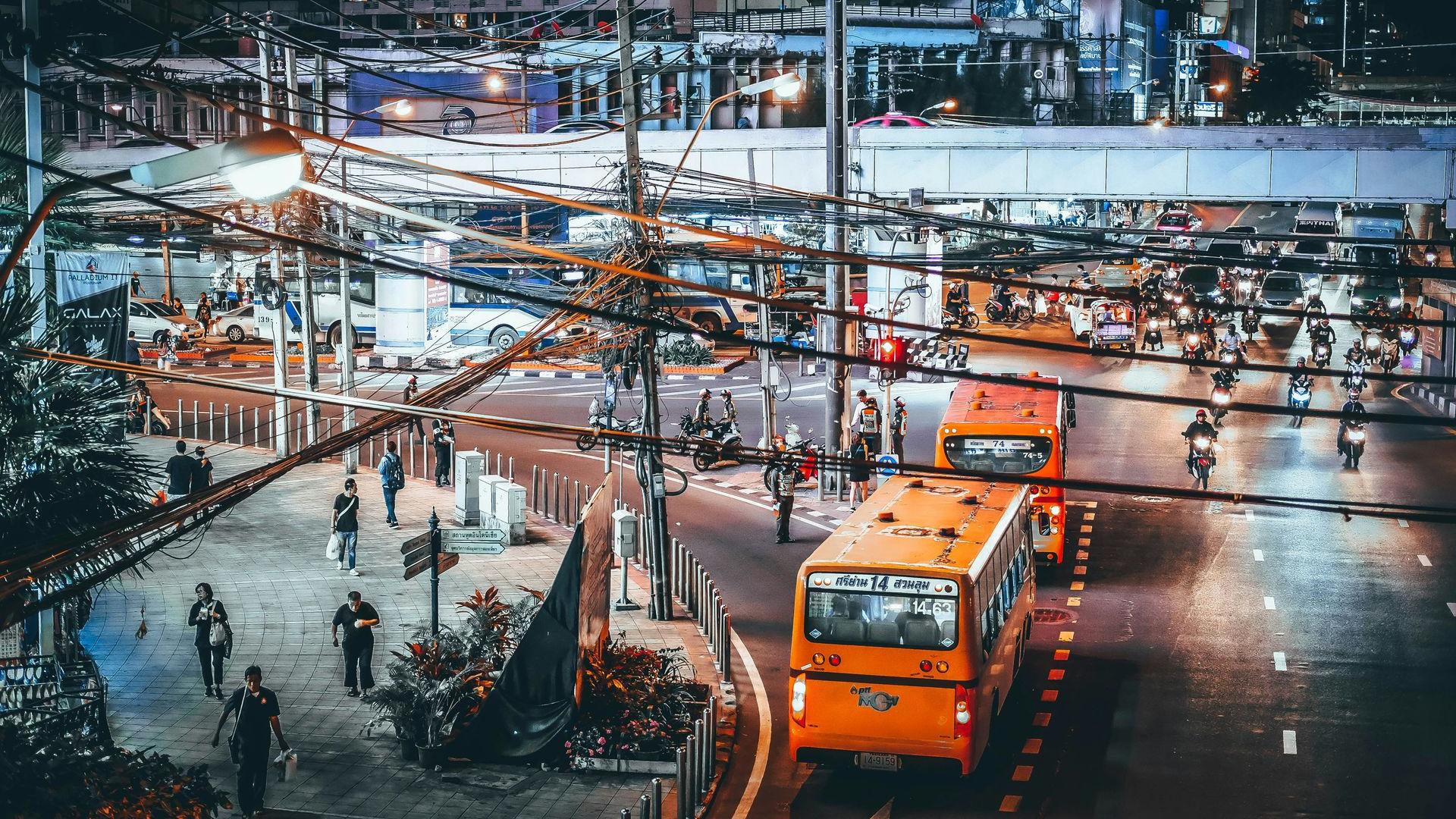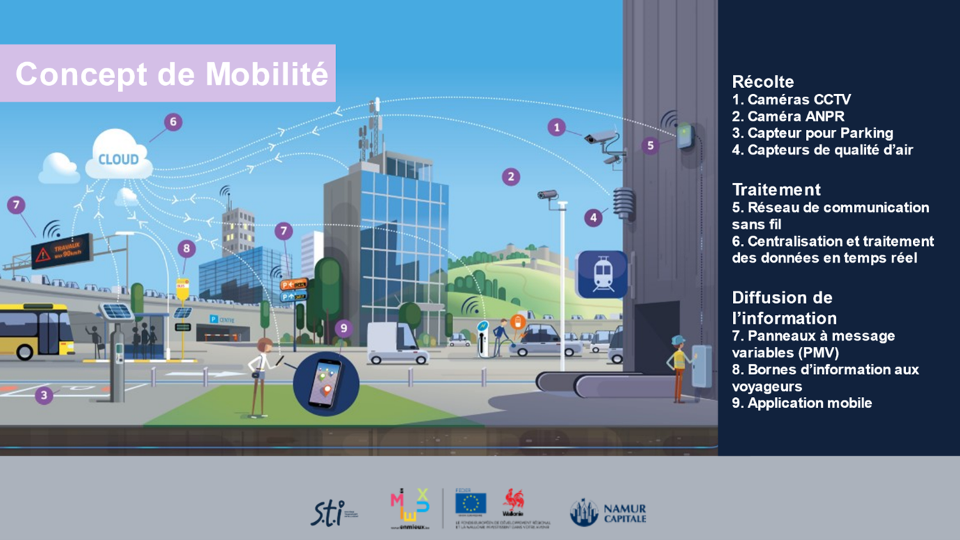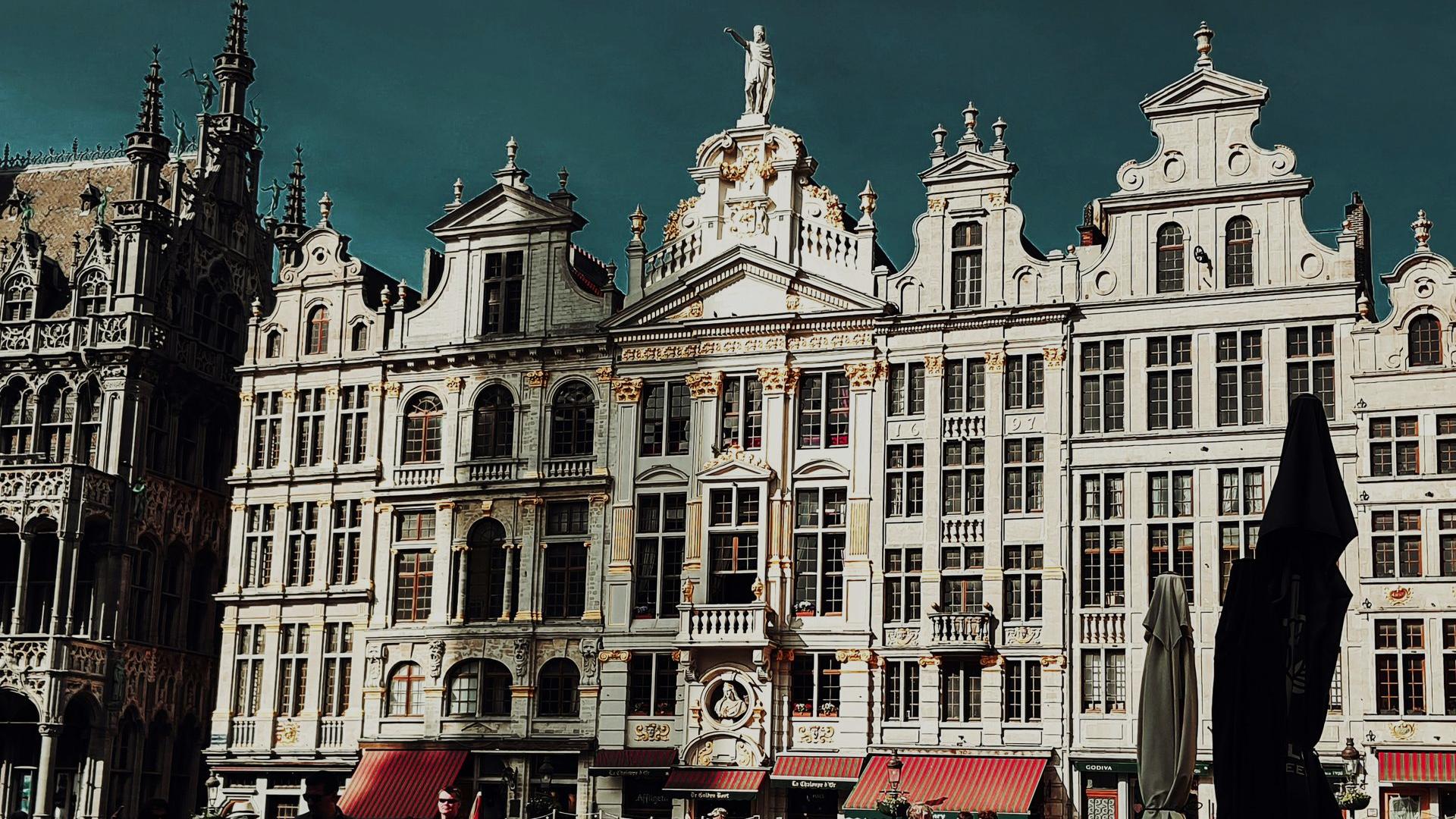Discover our Software Modules for this purpose
Macq presents a diverse array of solutions aimed at promoting the adoption of more sustainable modes of transportation.
Our smart cameras, sensors, and software collect and analyze mobility data, such as travel times, park & ride occupancy, and bus schedules. This information is communicated seamlessly through dashboards, websites, and variable message signs.
Harnessing AI technology, we effectively enforce bus and carpool lanes by accurately identifying vehicles such as buses, taxis, and car occupants.
Furthermore, our smart cameras and software efficently manage access to car-free zones by detecting vehicles, verifying access rights, and controlling barriers, bollards, or variable message signs. With our integrated whitelist feature, tailored authorizations for specific vehicles, such as residents and suppliers ensure a seamless and secure parking experience, complemented by our time scheduler for flexible access control.
These versatile modules offer a wide range of applications to optimize urban environments and facilitate a modal shift.


Belgium: Success Story in the city of Namur
The province of Namur in Belgium is a perfect example of a city that has been able to modernize itself, thanks to the latest generation of Macq mobility systems, all of which are interconnected and decentralized in the Cloud. First of all, the information sources are collected automatically, on the field, thanks to innovative technologies like Macq QCAM Smart Cameras that use artificial intelligence to increase their capacity tenfold.
All the data collected by the city is then processed automatically, transmitted via wireless communication networks and sent to the Cloud. This data can then be accessed and disseminated anywhere: on display signs, traveller information kiosks, or even on the city's mobile app, which can be accessed by anyone using a simple smartphone.
This is a revolution for the residents of Namur, who can now follow the activity in their city in real time, and have useful and relevant information at their fingertips. This is improving mobility, thanks to decision-making based on relevant information.










